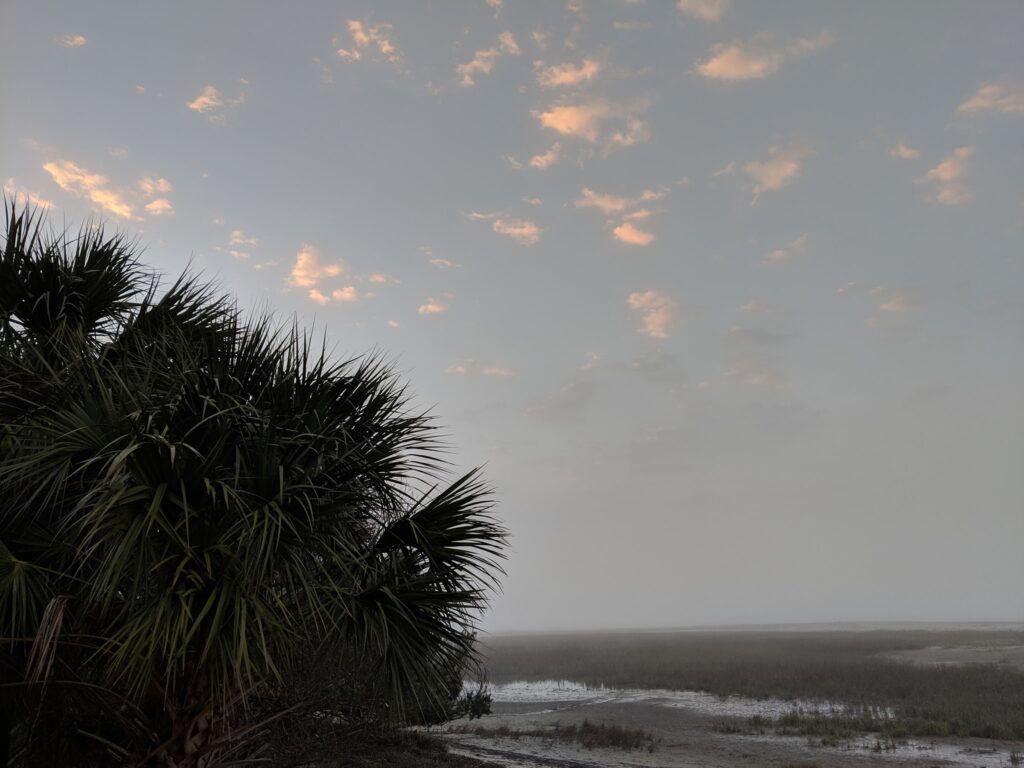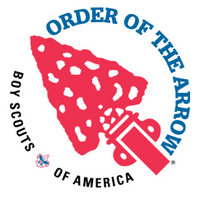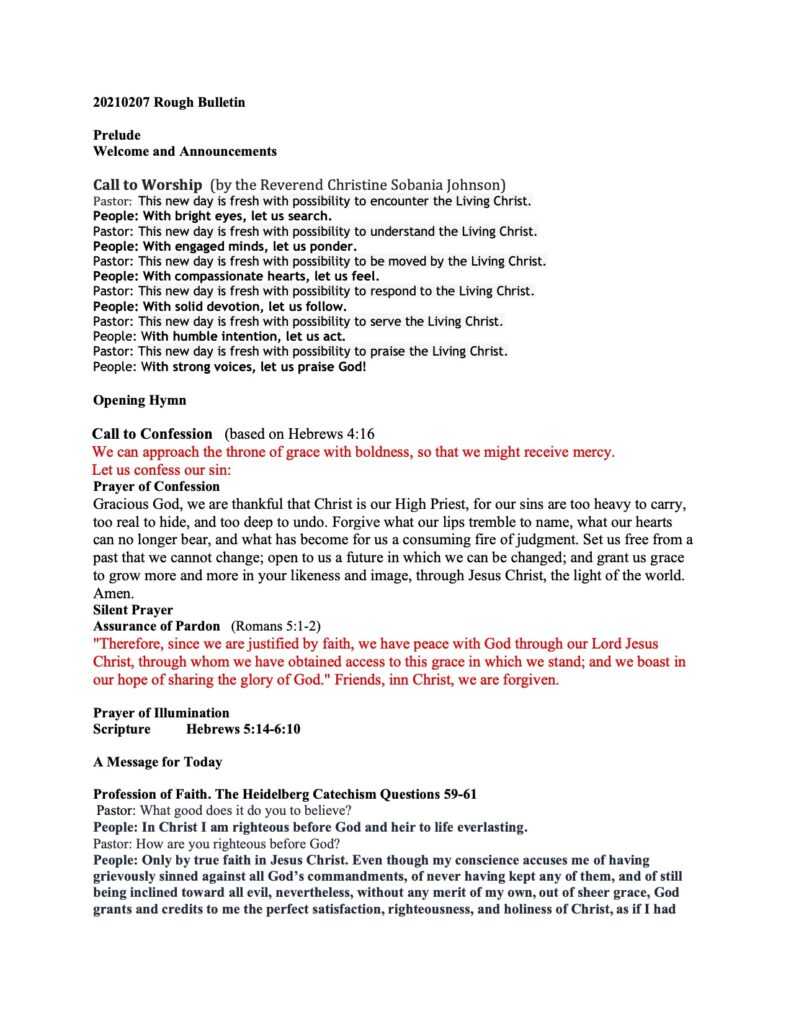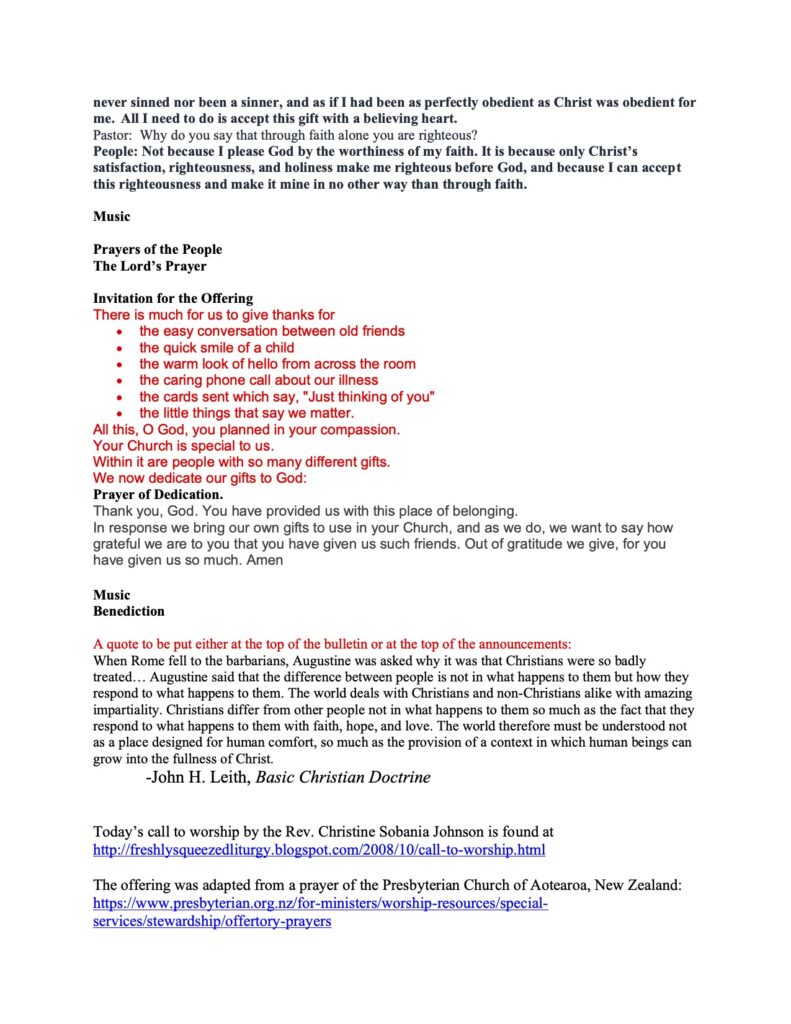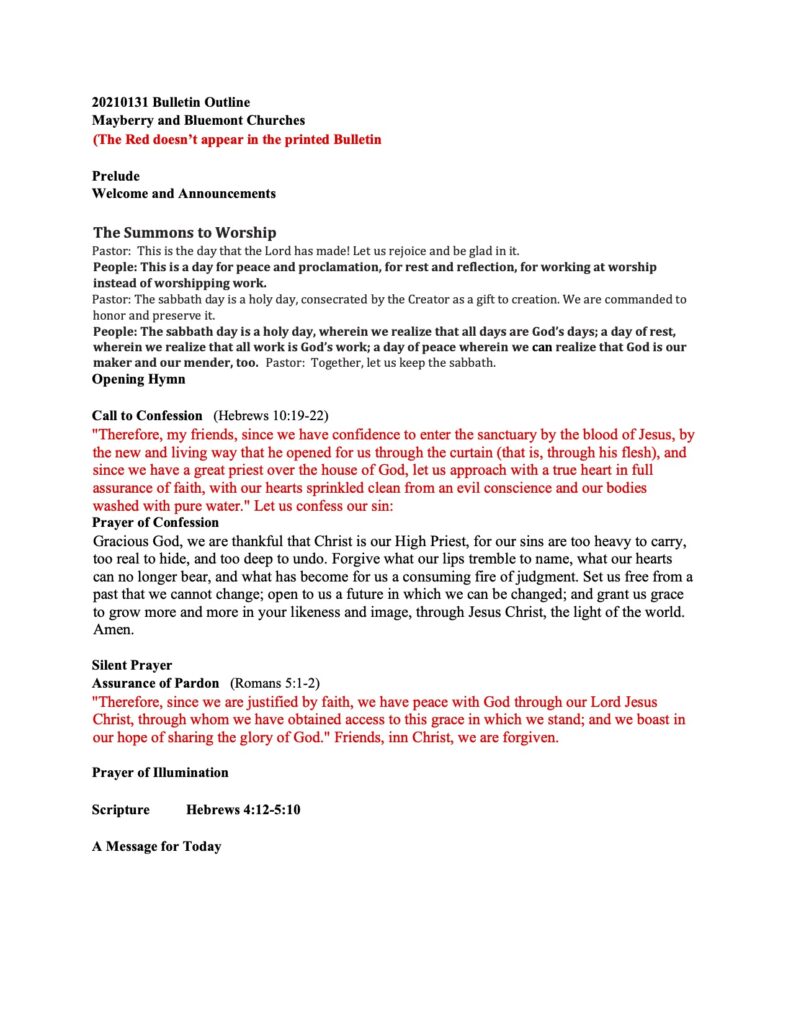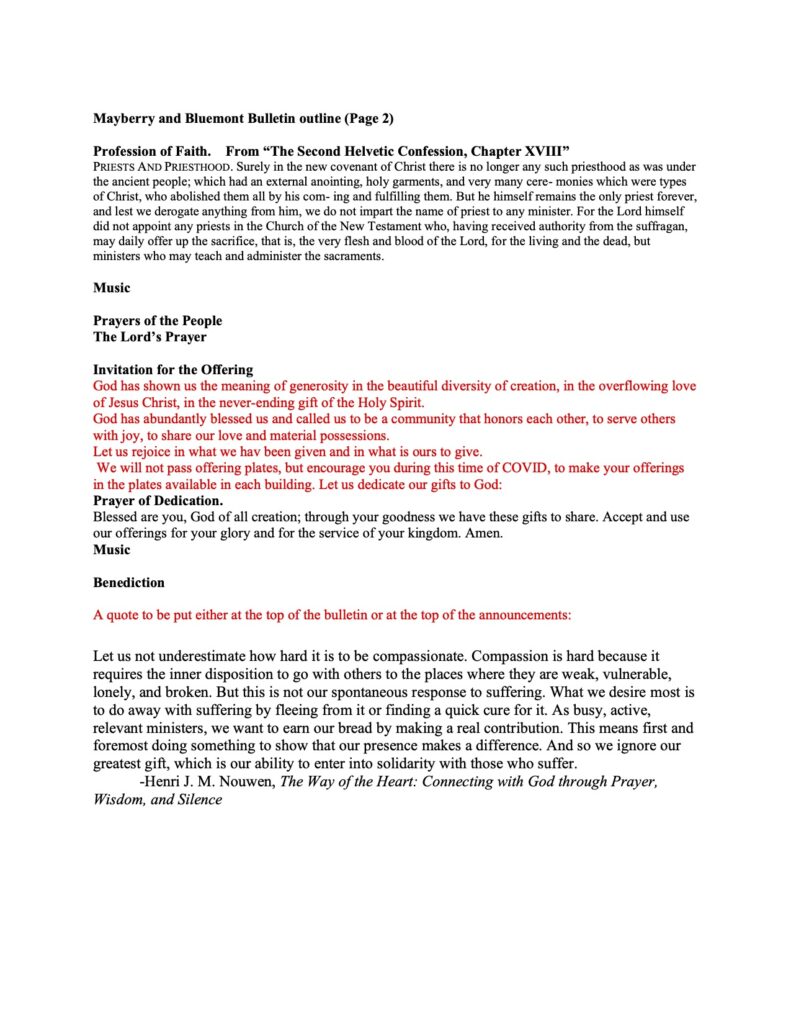Jeff Garrison
Bluemont and Mayberry Churches
Easter Sunday 2021
Mark 16:1-8
Sermon recorded at Bluemont Church on Friday, April 2, 2021
At the beginning of worship:
Why do we come here this morning? Do we come because it’s the thing to do on Easter Sunday? To get all dressed up for church. Do we come because we’re excited about the empty tomb and wonder what will happen next? Or do we come because we realize how empty Easter will be if we allow the holiday to be completely commercialized?
The Commercialization of Easter
A number of years ago, there was a cartoon on the opinion page of a newspaper that caught my attention. The words at the top read the “Commercialization of Easter.” Down below it showed a kid who had bitten into a giant chocolate Easter Bunny. The kid then looks into the bunny that’s empty on the inside and shouts, “It’s hollow!” He’s right. I often felt that way about those chocolate Easter bunnies. They’re deceiving. You think you’ve hit the chocolate jackpot and find it thinly disguised.
But think of this seriously. If today is just about Easter Bunnies and spring dresses and flowers (many of which were killed in the freeze over the past few days), the holiday is hollow. Yet, the boy’s also right in another way. For the tomb is hollow, which is another way to say it’s empty. An empty tomb and Jesus set free makes all the difference in the world. The empty tomb in which we hear the hollow echo of our voices, provides hope.
Taft and Coffin
Supposedly, back early in last century, William Howard Taft, the President of the United States, and Henry Sloane Coffin, one of the great preachers of the time, discussed the League of Nations. In case you don’t remember, the League of Nations was an attempt after the First World War to establish a United Nations type of organization. In discussing the League’s demise, Taft reportedly said to Coffin, “You ought to know that in this world the best things get crucified; but they rise again.”[1]
Personally, I don’t think that’s always true. It goes against logic, which makes Easter all the more important. I believe and know that Jesus was crucified, died and was buried, and he rose again. And that’s why I come here on this morning. That’s why we worship on the first the day of the week. I hope this is why you come. We come because the tomb is empty. Christ is risen. Even though it seemed on Friday that evil had its way, as it so often does, we come here this morning to celebrate good over evil, life over death.

After the Reading of Scripture:
Mark has an interesting way of telling the Easter story. Just after the sun rises, two women, Mary Magdalene and Mary the mother of James and Salome, come to the tomb for the sole purpose of anointing Jesus’ body. They want to prepare the corpse for its eventual decay. They’re ready with spices and bandages. They do this because they were friends of Jesus; in a sense they were a part of his earthly family. It’s their duty and also a way to say goodbye and to put this part of their life behind them. Furthermore, because Jesus died late on the day before the Sabbath, he had to be quickly placed in the tomb before the Sabbath began at sunset. So, there wasn’t time to prepare the body for the grave.
Not everything could be done on Friday
These women are going to do what they were not able to do on Friday. Yet, they head to the tomb with faith, for they know someone will have to roll away the stone. Along the way they discuss this problem. But they are unable to come up with an answer.
The Surprise at the Tomb
Then, when they reach the tomb, they find the unexpected has happened. The stone has already been removed. And when they look inside, instead of finding Jesus, they see a young man who obviously is an angel, a messenger from God, dressed in white. Mark tells us they were alarmed, which seems to be an unnecessary bit of information. Of course, they are alarmed. We’d be, too. The dead don’t rise from the grave.
This young man acknowledges that they are looking for Jesus of Nazareth, who had been crucified. Certainly, those who suffered on the cross don’t rise from the grave. Yet, that’s what he said has happened. Jesus has been raised. They are to go and tell the disciples that Jesus will meet them in Galilee.
A Natural Reaction
And what do the women do? Scared to death, they flee, and they don’t tell anyone what happened. That, by the way, is the original ending of the book of Mark.[2] And it’s where I am ending the text we’re wrestling with today.
Mark’s gospel verses John’s
There is a reason Mark’s gospel contains the least favorite resurrection story. Most of us prefer John, with its beautiful language and storytelling. There, we’re told Mary Magdalene comes to the tomb alone, before sunrise. It’s still dark. She comes, probably wanting some quiet time with Jesus, only to find the stone rolled away and Jesus missing. She runs and tells the disciples. Next, there’s the foot race between Peter and John.
While Peter and John check out the tomb, Mary Magdalene hangs around outside. A strange man comforts her. She takes him as the gardener. But when this man calls Mary by name, she recognizes him. Out of a deep devotion, she calls him Rabbi… Jesus has made his first resurrection appearance.
Attempts to “Clean Up” Mark’s Ending
But Mark, he ends his story with the women running away and so distraught that they cannot tell anyone. It doesn’t seem right. A century or so later, in the end of the second and early in the third century, we have two additional endings of Mark’s gospel. One is short, the other is long. The long one contains a number of interesting appearances of Jesus along with a commissioning that speaks of them handling snakes and drinking poison, something not mentioned in the other gospels and certainly not done in most Presbyterian Churches.
Why Did Mark End His Story this Way?
Why did the original ending of Mark leave us with frightened women who can’t tell what happened?[3] Did Mark run out of time to finish his gospel? Perhaps he suffered an early martyrdom. Dragged away with his pen still wet? Or perhaps he meant to end the story here, leaving us hanging. That’s a common literary technique. Movies do this. The reader is left to ponder what happened.
The Caine Mutiny
Some of you may remember the book, movie or Broadway play, “The Caine Munity.”[4] In was about the crew of a minesweeper in the South Pacific during World War 2. The captain, acting irrationally, forces the other officers aboard the ship to relieve him of command. This results in their court-martial.
There was a remake of the play, which I saw in 2003. The original movie and play concluded with the acquittals of the officers and the reaction of others crew members at a party afterwards. But in this remake, the play ends after both the prosecution and defense rests their case. In the remake, it’s left up to the audience to decide the guilt and innocence of the defendants.
Mark’s Saying, It’s Up to Us
In a way, the original ending of Mark’s gospel is like that. We’re left to wonder, to finish out the story. Do we believe it? And, if so, does it make any difference in our lives?
Where Jesus’ Meets Us
Another way to understand the ending is to consider what the women were told. They were to tell the disciples that Jesus was going to meet them in Galilee. Why Galilee, we might wonder? Well, Galilee is where they’re from. They’re tourists or pilgrims in Jerusalem. They grew up in Galilee. It’s where they work, and their families are at. In other words, Galilee is their ordinary life.
And where does Jesus meet us? For some, it happens in church, but most often, I suggest, Jesus meets us where we live and work. In other words, Jesus meets us in the ordinary.
Ann Lamott’s Conversion
One of the most moving conversion stories I’ve heard is from Ann Lamott. In her book, Traveling Mercies, she writes about being totally down and out. It was 1984 and she lived on a small houseboat in the San Francisco Bay. Because the father was married, she recently had an abortion. A few days after the procedure, something went wrong. She began to bleed. Instead of seeking help, she drank and did drugs and wanted to die.
Throughout this time, she felt someone sitting at the foot of the loft where he had her bed. She turned on the light to see and no one was there. But she was sure it was Jesus, watching over her. He was gone in the morning. However, for the next few days, she felt as if Jesus was following her like a cat. And, like a cat, she knew if she ever let him in, she could never get rid of him. After about a week, she relented. She accepted Jesus into her life.[5]
Jesus Will Meet Us in Galilee
Jesus meets us in the Galilees of our lives. Like Lamott, we may be down and out. We may be filled with grief. Or we may be looking for direction. And then Jesus shows up. Sometimes, like with Lamott, he’s by himself. Other times he shows up through the actions of another believer who reaches out to us. And Jesus offers hope. The tomb is no longer the end. Life is beautiful and continues on. “Come, follow me, let me show you,” he says.
The Empty Tomb Gives Hope
We gather here today as Christians have gathered over the millenniums, because the empty tomb gives us hope and provides us with possibilities of what life is all about. We gather because once we look into the empty tomb, our lives are changed. No longer do we need to look back, like the women did when they were ready to anoint the body with spices.
We can now look forward into a new and exciting future that God is creating. On Easter, we’re reminded not to only enter the tomb in sadness, but to pause and look around in awe and then leave amazed at what God can do.
Power Over Death
God’s power extends over death, so we no longer have to be afraid of dying. God’s power extends over evil, so we no longer have to be afraid of what might happen to us in this frightening world. God’s power extends over our lives so that we don’t have to live in fear that we’ll mess us. Do not be afraid, the angel to the women, for the tomb is empty. Halleluiah! Christ is risen! Amen.
[1]As quoted by Richard Dixon in the Presbyterian Outlook, 15 January 1996.
[2] There are several possibilities according to Bruce Metzger: 1. The evangelist intended to close his Gospel at this place. 2. The Gospel was never finished. Or 3. The Gospel accidentally lost its last leaf before it was transcribed. See Bruce M. Metzger, A Textual Commentary on the Greek New Testament (1971, United Bible Societies, 1975), n7.
[3] For a detailed treatment on Mark’s ending, see Morna D. Hooker, The Gospel According to Saint Mark (London: A & C Black, Publisher, 1991), 391-394.
[4] Herman Wouk, The Caine Munity, 1951. It was made into a movie in 1954 (Staring Humphrey Bogart) and as a 2 act Broadway play in 1954. The adaptation I saw in 2003 was at Hope College in Holland, Michigan.
[5] Anne Lamott, Traveling Mercies: Some Thoughts on Faith (New York: Anchor Books, 1999), 48-50.

